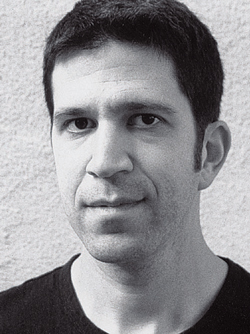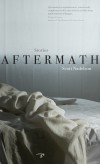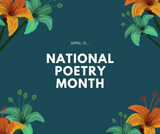 “I think I discovered the Far West and some subject matter of my earlier fiction at almost the same time,” wrote Bernard Malamud about his decade in Oregon, during which he produced some of his best-known books: The Natural, The Assistant, The Magic Barrel. It was “an interesting conjunction, in imagination,” he went on, “of Oregon and the streets of New York. One’s fantasy goes for a walk and returns with a bride.”
“I think I discovered the Far West and some subject matter of my earlier fiction at almost the same time,” wrote Bernard Malamud about his decade in Oregon, during which he produced some of his best-known books: The Natural, The Assistant, The Magic Barrel. It was “an interesting conjunction, in imagination,” he went on, “of Oregon and the streets of New York. One’s fantasy goes for a walk and returns with a bride.”
I first read these words a year or so after I myself had moved from New Jersey to Oregon, and at first I didn’t understand what Malamud meant by them. Not that I didn’t understand intellectually—of course he was talking about writing of one place while living in a very different one—but I didn’t yet know how your imagination could conjoin Oregon and the streets of New York; I didn’t know how your fantasy could find a bride, and how you would recognize it if it did.
At the time, I was a graduate student at Oregon State, where, from 1949 to 1961, Malamud had taught composition and literature and won his first National Book Award before returning eas. As I walked the placid sidewalks of Corvallis and misty trails in the nearby forest, as I drove winding roads to the Coast or the mountains, I tried to imagine how the  skyscrapers of New York could have superimposed themselves on the towering Douglas Firs, how the voices of Jewish immigrants could have made themselves heard over the sound of migrating geese. For me, the point of moving West was all about escape; I wanted to get away from the suburbs, from what I perceived as East Coast aggression and intensity, from my habit of yelling at other drivers in traffic. I wanted peace, sanctuary, and I saw no reason for my imagination to return to the place I’d abandoned so eagerly.
skyscrapers of New York could have superimposed themselves on the towering Douglas Firs, how the voices of Jewish immigrants could have made themselves heard over the sound of migrating geese. For me, the point of moving West was all about escape; I wanted to get away from the suburbs, from what I perceived as East Coast aggression and intensity, from my habit of yelling at other drivers in traffic. I wanted peace, sanctuary, and I saw no reason for my imagination to return to the place I’d abandoned so eagerly.
That year I was writing about Scotland, where I’d lived for a year after college, and my stories were predictably distant, my characters wooden, their dialogue forced. After several failed attempts, a teacher encouraged me to write closer to my own experiences, to look at my childhood and adolescence, to get under my own skin. I  agreed to try, with reluctance, but secretly I set out to prove to him how dull my background was, how lifeless those New Jersey suburbs, how empty of material for compelling fiction.
agreed to try, with reluctance, but secretly I set out to prove to him how dull my background was, how lifeless those New Jersey suburbs, how empty of material for compelling fiction.
And then, when I sat down to write, something strange happened. I was imagining the place where I’d spent my first eighteen years, the freeways and shopping malls, the schoolyards and sports fields and synagogues, only it didn’t look exactly like the place I knew; or rather, it looked so familiar that I couldn’t believe how interesting it seemed to me, how ripe with tension and conflict, with quiet struggle and complicated relationships. It was as if I were seeing the place for the first time, and instead of my usual antagonism, I felt toward it a surprising generosity, nostalgia and even affection. I wrote the story my teacher asked for in three or four days and have written stories about New Jersey ever since.
 What happened then, I think now, fifteen years later, was that I’d seen my home place through the distorting lens of three thousand miles, obscured, in part, by Doug Firs and glaciated peaks—and oddly, that distorted and obfuscated lens was somehow clarifying. By moving to the Pacific Northwest, where I no longer felt oppressed by traffic and aggression and what I’d believed to be an insular, unwelcoming community, I’d discovered an angle of vision with which to view the place I’d left behind—and from that angle I saw that this place was full of life lived on a scale I understood, a perfect container for the sort of drama that seems most real to me, between people I know better than anyone else. My fantasy had found a bride despite my best efforts at bachelorhood.
What happened then, I think now, fifteen years later, was that I’d seen my home place through the distorting lens of three thousand miles, obscured, in part, by Doug Firs and glaciated peaks—and oddly, that distorted and obfuscated lens was somehow clarifying. By moving to the Pacific Northwest, where I no longer felt oppressed by traffic and aggression and what I’d believed to be an insular, unwelcoming community, I’d discovered an angle of vision with which to view the place I’d left behind—and from that angle I saw that this place was full of life lived on a scale I understood, a perfect container for the sort of drama that seems most real to me, between people I know better than anyone else. My fantasy had found a bride despite my best efforts at bachelorhood.
“I was overwhelmed by the beauty of Oregon,” Malamud wrote, “its vast skies, forests, coastal beaches—and the new life it offered, which I lived as best I could as I reflected on the old.” I, too, now live a sort of double life, gawking at enormous trees and sparkling waterfalls while imagining parking lots and video arcades. With my feet planted far enough West, my mind can travel East as it pleases. But unlike Malamud, who finished his days on the coast where he’d started, I never intend to leave.
Scott Nadelson is author of three story collections: Aftermath, just out from Hawthorne Books; The Cantor’s Daughter, winner of the Samuel Goldberg & Sons Fiction Prize for Emerging Jewish Writers and the Reform Judaism Fiction Prize; and Saving Stanley: The Brickman Stories, winner of the Oregon Book Award for short fiction and the Great Lakes Colleges Association New Writers Award. He teaches creative writing at Willamette University. There’s a great interview with Nadelson about his writing here. His favorite indie bookstore is Broadway Books, where he will read Friday, September 9 at 7 pm.


